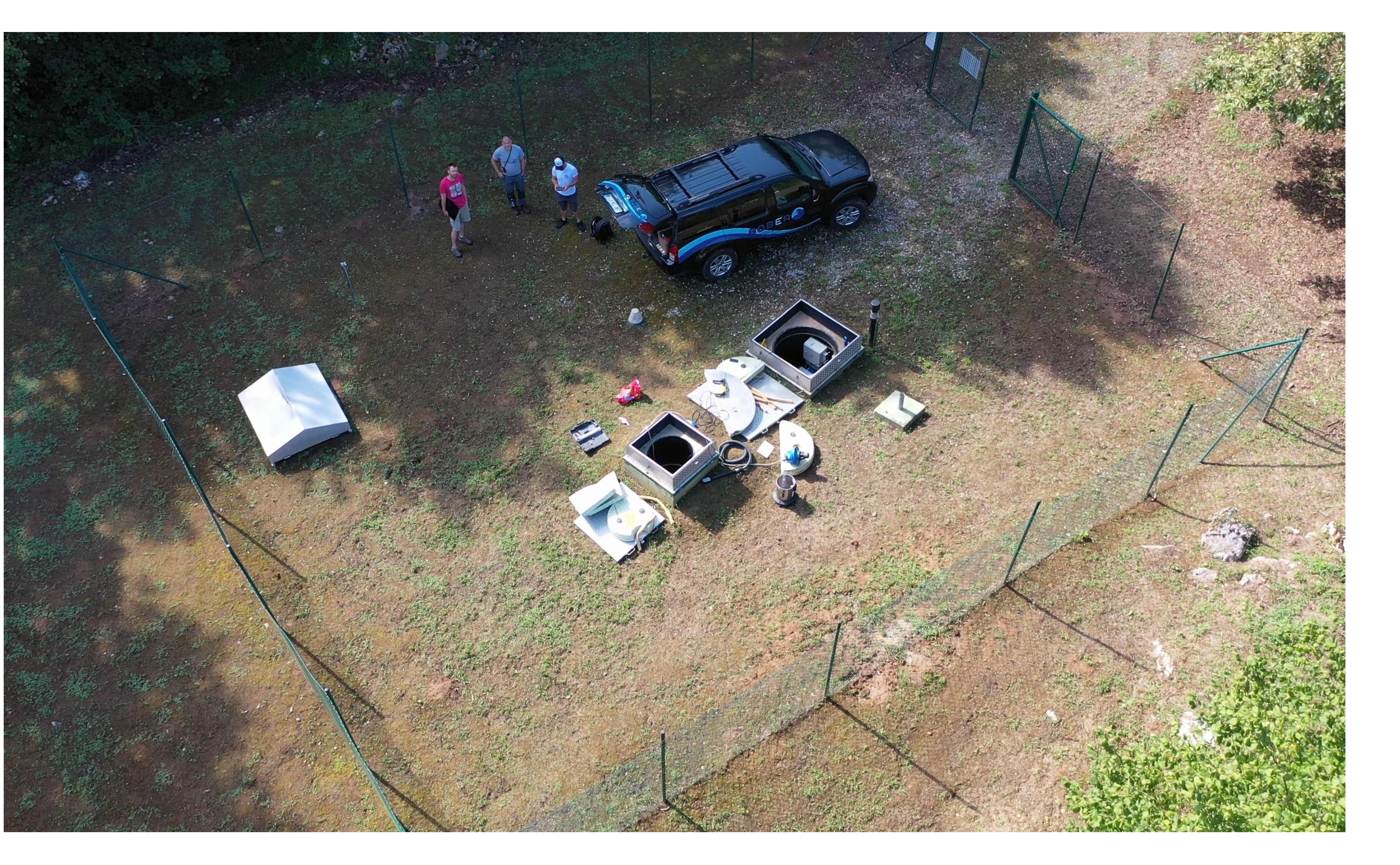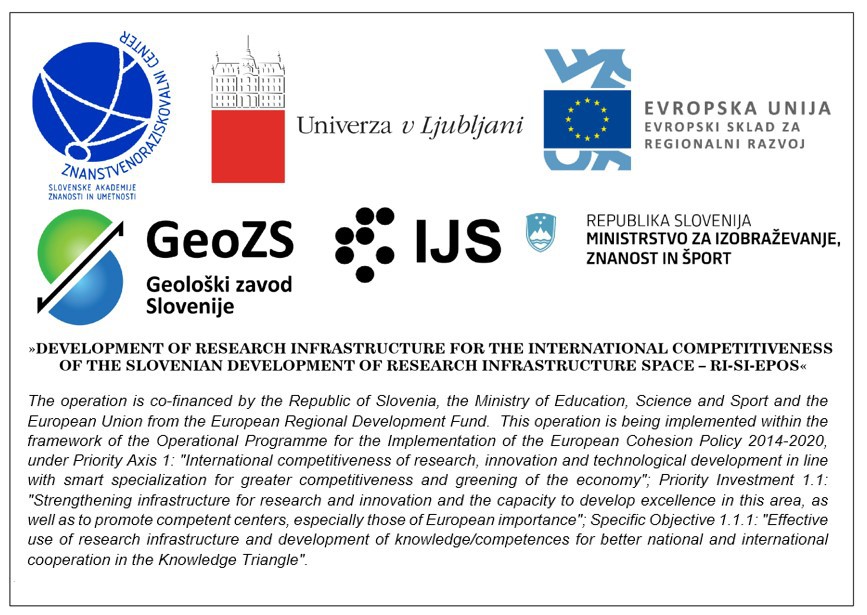From July 2019 to August 2021, the four partners of the EPOS Slovenia Consortium coordinated the RI-SI EPOS project, which aimed at creating and consolidating a national network of Solid Earth data.

broadband seismic station in Bojanci, Slovenia. Photo: M. Krebelj.
The “Development of research infrastructure for the international competitiveness of the Slovenian RRI space – RI-SI-EPOS” project was granted in 2019 to the four partners of the EPOS Slovenia Consortium: the leading partner ZRC SAZU, GeoZS, ULFGG and IJS.
The RI-SI-EPOS project was funded by the Slovenian Ministry of Education, Science and Sport and the European Regional Development Fund, and aimed at building a national network for the collection, edition, design, and storage of Solid Earth data in the field of seismology, geology, geodesy, and near-fault observatories (NFO).
New equipment
With the help of the new research equipment from the RI-SI-EPOS project, the Slovenian partners are now collecting a large amount of research data in digital form. Part of this data will be also included in the national Karst database at ZRC SAZU, harmonized with FAIR principles and designed to provide a temporal and spatial link between specific sites.
Data Center
The EPOS Slovenia Data Center, a powerful network of servers and computer units, has also been established. Although it is still in an early stage of development, the EPOS Slovenia Data Center has already begun to collect large datasets obtained with the new instruments and catalogue their metadata within a GeoNetwork portal. The goal is to build a standardized database with system management and user interface for data mining and access to data products.
The architecture of the new data centre intends to replicate the functionality and standards of EPOS ERIC to be compliant with FAIR data principles and data lifecycle. Data collected by RI-SI-EPOS's equipment will support the development of data and services planned and/or already developed and operating within the EPOS Slovenia consortium.
Publications
In addition, EPOS Slovenia is now providing new seismological research measurements and observations leading to scientific publications, as well as new datasets curated from the RI-SI-EPOS stations 2021 network. Thanks to new research equipment, a Near-Fault Observatory site in Slovenia was proposed (see SLO KARST NFO (Postojna) Slovenia web map). A short presentation of the Slovenian NFO site together with its capabilities can be found here.
Research opportunities and incentives
The RI-SI-EPOS project has also enriched the international research infrastructure EPOS ERIC with new research opportunities and incentives. The project has contributed to:
(1) long-term and qualitative monitoring and assessment of geophysical, geological and geochemical processes in the solid Earth and the atmosphere,
(2) a better understanding of events in nature and their interactions,
(3) densification of the network of observational sensors (in the fields of seismology, geodesy, geology),
(4) the modernization and upgrade of existing instruments for all areas of partnership monitoring, and
(5) the strategic integration of research capacities into a complementary whole, ensuring research excellence in the national and international space. A national hub of distributed solid earth research data centres will be organized at individual national partners.
The application for the RI-SI-EPOS project was possible because Slovenia was one of the founding countries of EPOS ERIC in 2018. The project was a concrete added value for the participation of Slovenian partners in the EPOS community since 2010.

Contributors: Dr. Magdalena Năpăruş-Aljančič & Dr. Stanka Šebela (ZRC SAZU).
A short video presentation of the RI-SI-EPOS project can be found here: https://www.youtube.com/watch?v=NM1so88QNgc